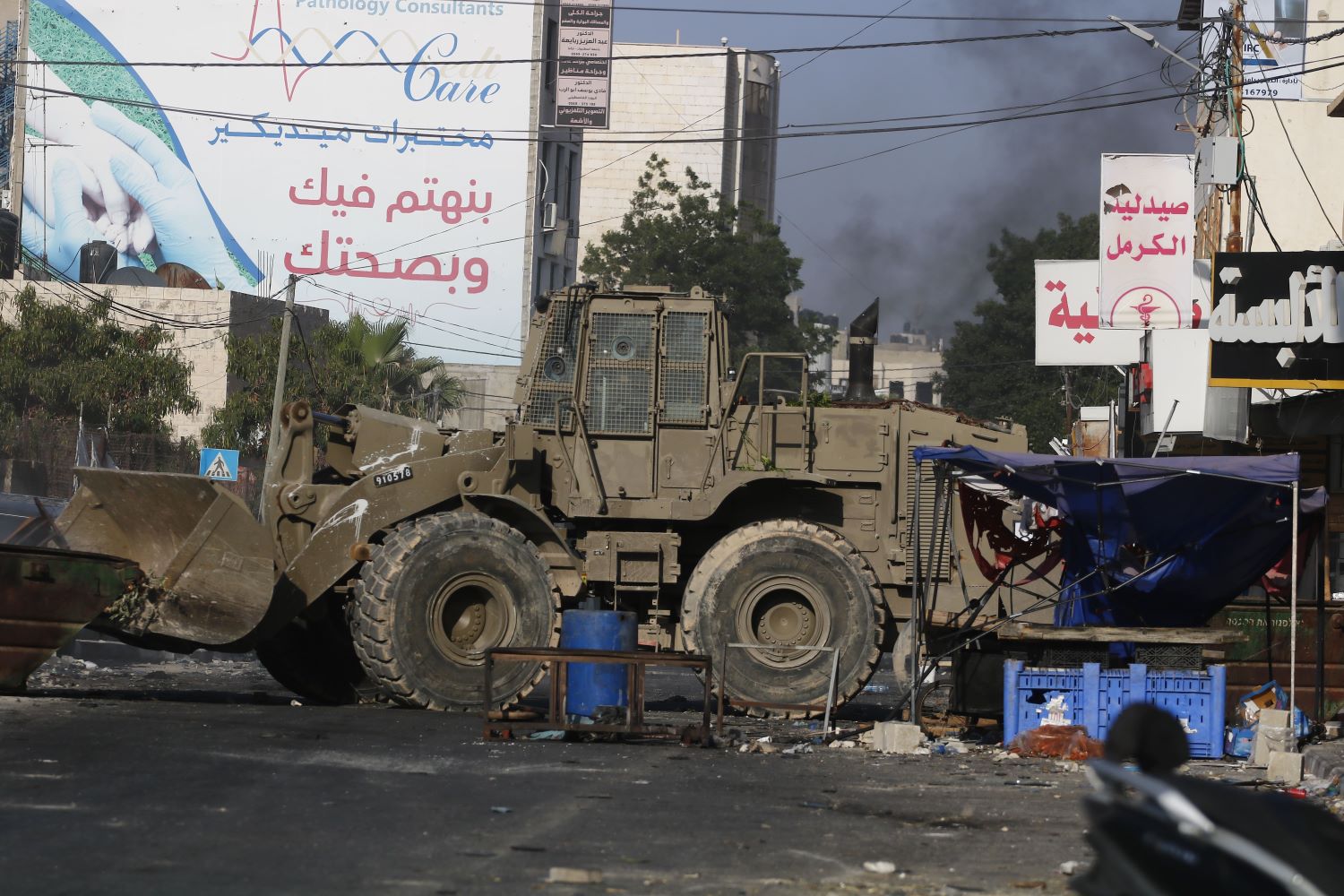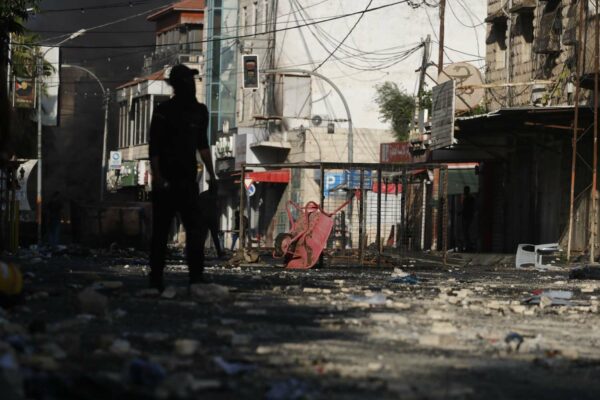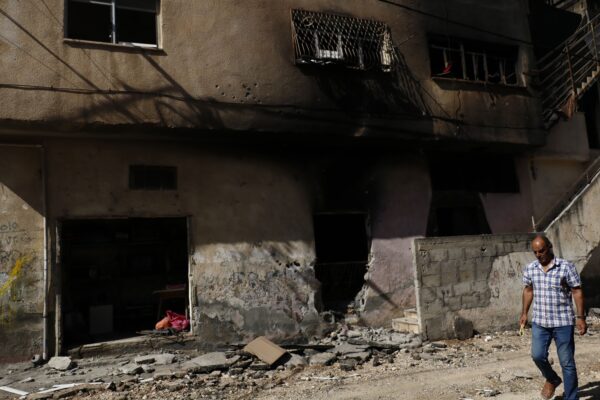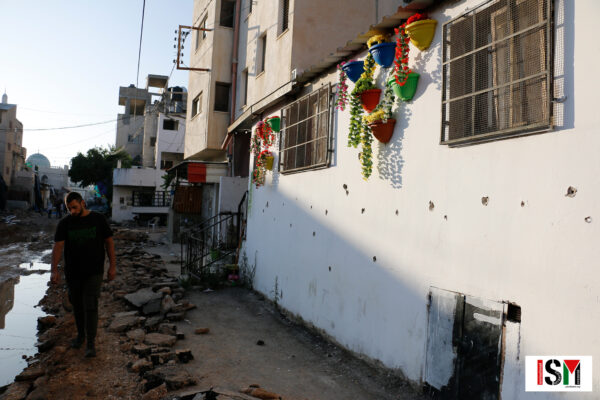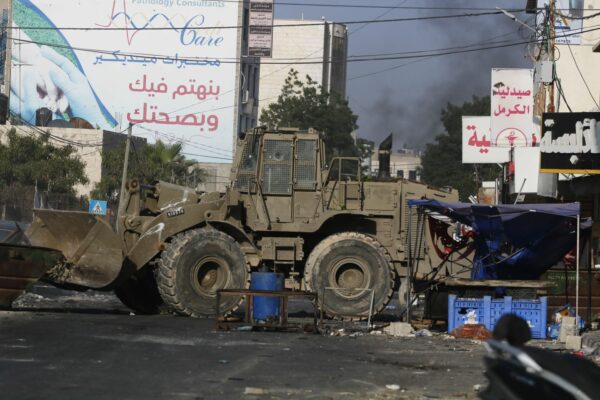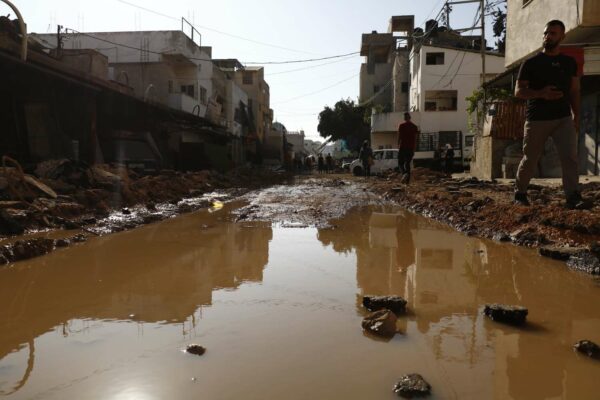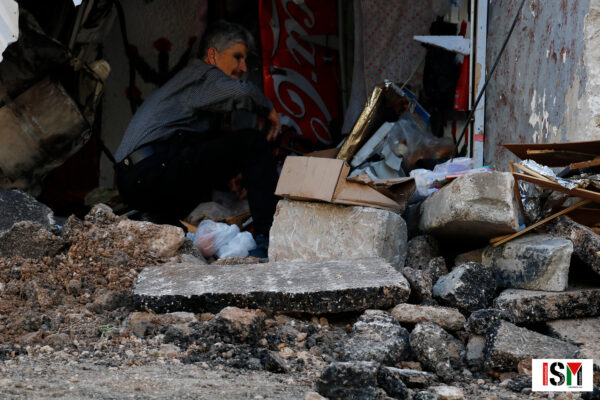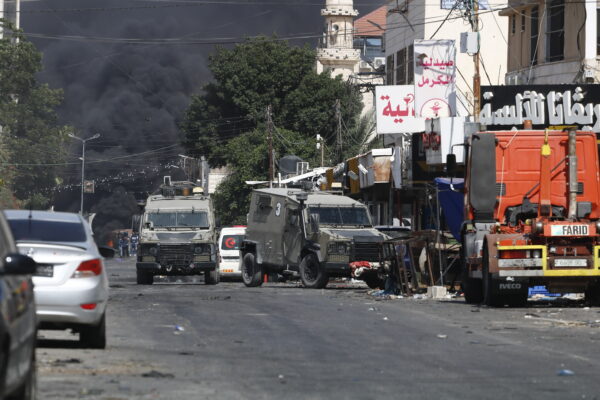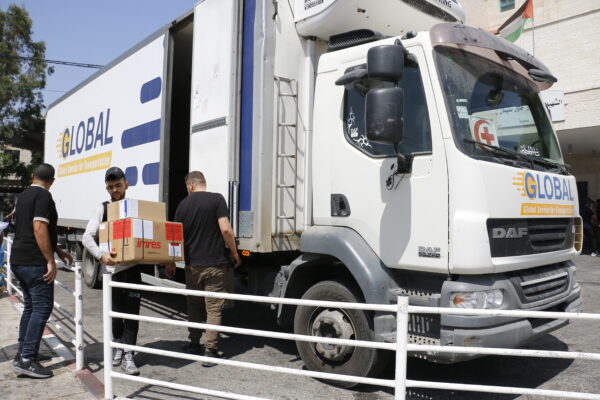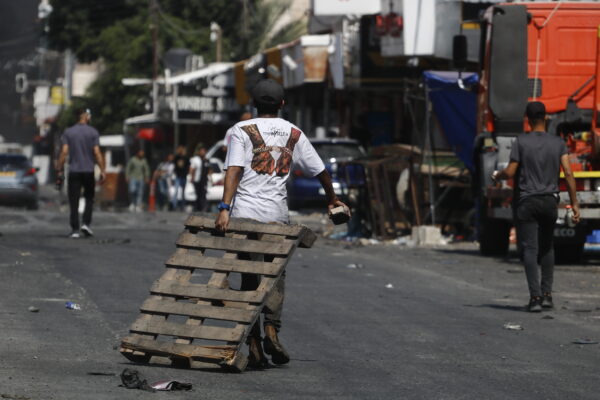By ISM volunteer D. N.
When I arrived in Jenin, on Tuesday July 4th, the city was a battlefield, the streets were destroyed and burnt, tear gas canisters and bullets lay on the ground, the air was filled with smoke, the sound of live bullets, the screams of young men. The residents were in a state of high alert.
The day before, Monday the 3rd of July, residents were awakened by the sound of the explosion aerial bombardment by drones and Energa anti-tank rifle grenades. More than 2,000 soldiers and about 450 military vehicles invaded the city.
Ashraf Al-Saadi, a resident of the camp told me: “We are civilians. We did not go to the Israeli military sites. The occupation came to us. What did we do!? How do we deserve this?”
Jenin Refugee Camp was destroyed once before in 2002. In 2023 alone, there have been three massacres: In the first the occupation forces killed 12 martyrs, in the second the occupation forces killed 8 martyrs, and in the last most recent massacre the occupation forces killed another 12 martyrs, including 3 high school students.
As I watched the occupation forces turn the streets of Jenin upside down and transform them into a burning battlefield dominated by smoke and blackness, I asked myself: “Will Jenin be able to rebuild and light up again?”.
Ashraf Al-Saadi, told me that since the first hours of the operation, while ambulance teams struggled to reach the besieged houses and the injured inside the camp’s lanes Israeli snipers were deployed heavily on tall buildings on the outskirts of the camp, including in his own home. As we entered Ashraf’s house he explained: “The occupation forces broke into my house, which is part of a building consisting of four floors. We are four families, one living on each floor. The occupation forces detained us all, four families in one room, and seized the rest of the house and used it to monitor the movements inside the camp and to deploy snipers in the house. They damaged the house, broke and vandalized furniture, and stole some money.”
On the second day of the incursion, the Israeli occupation forces closed the entrances to the city, especially the main road of the camp, with jeeps and armored vehicles. This left the camp residents without water or electricity for more than 30 hours. Many families were forced to leave the camp. According to the Office for the Coordination of Humanitarian Affairs of the UN 3,500 people were internally displaced during the operation.
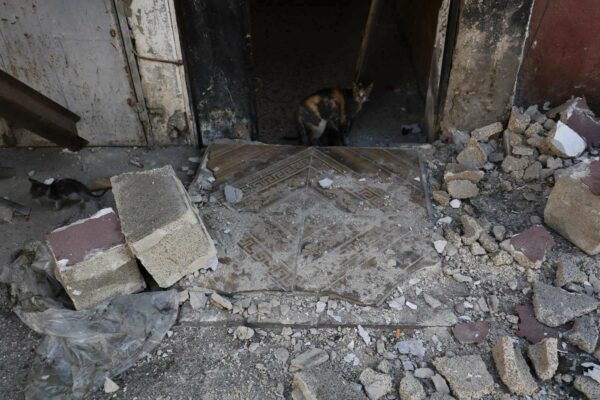
I went to Jenin government hospital. In my mind I can still hear the heavy sound of bullets fired by the Israeli occupation forces at unarmed civilians in the vicinity of the hospital, which is only 70 meters away from the camp. Everyone was a target, including the medical teams who were trying to reach the injured and the press teams that were documenting the events the occupation forces were targeting everyone, they did not differentiate.
The destruction caused by the occupation to the houses and infrastructure in the camp includes: 4 buildings completely destroyed, 25 residential buildings partially damaged, and roughly 250 damaged residential units. The number of commercial and service buildings damaged reached around 150 and a mosque was partially destroyed. The Israeli occupation forces completely destroyed the infrastructure, roads, and streets: electricity and water were cut off, and sewage pipes were destroyed.
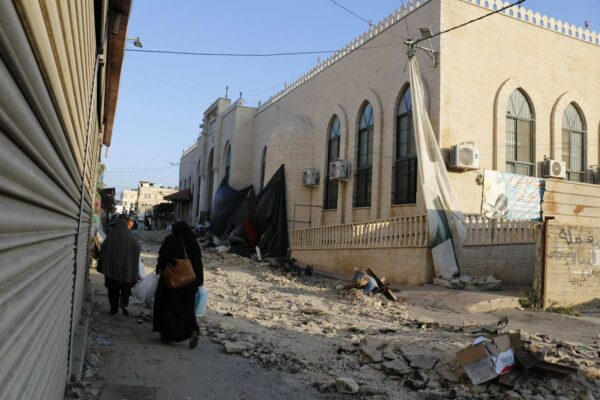
Turkmen, another camp resident, lives with his family on the ground floor of a building, his brother’s family live on the second floor. In the early hours of the military aggression on Jenin camp his home and his brother’s home were bombed from the air. Both homes were completely burnt. In the burning house, new furniture bought by Turkmen’s eldest son, who was preparing for his wedding next Friday, was charred. ”I was preparing to take my son’s furniture to his new home, but the invasion surprised us and we couldn’t move anything, even our clothes were completely burned.”
UNRWA, The International Relief Agency for Palestine refugees, provided food parcels and medicines to help the camp’s residents.
The camp residents told me that despite being afraid, hungry, thirsty and unsafe they will not surrender to the aggression of the occupation.
But we are left asking: who will condemn the Israeli occupation for its crimes against the Palestinian people in general, and against the Jenin camp in particular?

